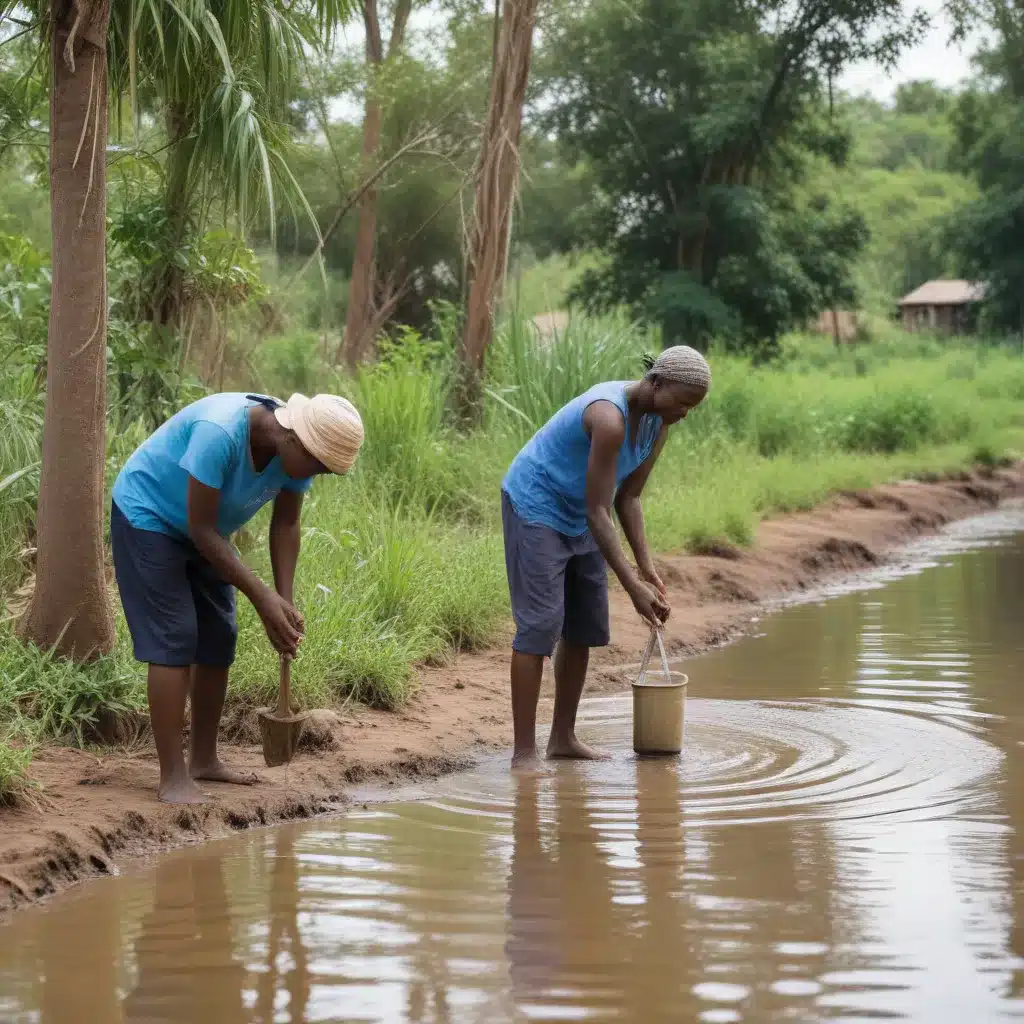
Strengthening WASH Services and Community Resilience
Access to clean, reliable water and sanitation services is a fundamental human right, yet millions of people worldwide continue to lack these basic necessities. Climate change and environmental degradation exacerbate existing challenges, contributing to water scarcity, contamination, and the disproportionate impact on vulnerable communities. To overcome these complex issues, a holistic, community-driven approach is essential.
Community-based interventions have emerged as a powerful strategy to enhance water resource resilience, empowering local stakeholders to lead the charge in sustainable water management. By actively involving communities in the design, implementation, and maintenance of water and sanitation (WASH) services, these initiatives foster a sense of ownership, promote long-term sustainability, and build climate change adaptation capacity.
Addressing Climate Change Impacts on Water Resources
Climate change is a significant threat to water security, with rising temperatures, changing precipitation patterns, and extreme weather events disrupting the delicate balance of water resources. In Malekula, Vanuatu, for example, groundwater is becoming increasingly saline due to sea level rise and more frequent droughts, severely impacting the lives of vulnerable rural communities.
To address these challenges, the proposed Green Climate Fund project in Malekula aims to create a climate-resilient water supply system, shifting away from small, decentralized systems that are vulnerable to climate change and towards larger, centralized systems that are more resilient. The project will employ an ecosystem-based adaptation (EbA) approach, investing in interventions that lead to sustainable water resource management at the national, provincial, and community levels.
Empowering Communities for Long-term Resilience
Community-based interventions are not merely about infrastructure development; they are about empowering local stakeholders to be active participants in the process. By engaging communities in decision-making, capacity-building, and maintenance activities, these initiatives foster a sense of ownership and long-term commitment to the sustainability of water and sanitation services.
The RISE II project in the Sahel region of Africa, for example, emphasizes the importance of community-led water resource management. The project works closely with local communities to assess their water needs, design appropriate solutions, and establish sustainable maintenance and governance mechanisms. This approach not only ensures the relevance and effectiveness of the interventions but also builds the capacity of community members to adapt to changing environmental conditions.
Integrating Nature-based Solutions for Resilient Water Systems
Alongside community engagement, nature-based solutions (NbS) offer a promising approach to enhancing water resource resilience. NbS leverage the inherent capabilities of natural ecosystems to provide a wide range of benefits, including water regulation, filtration, and storage.
The FEMA Nature-Based Solutions Guide highlights the potential of NbS to improve water resource management and build community resilience. For example, restoring wetlands and floodplains can help regulate water flow, reduce flood risk, and improve water quality. Similarly, reforestation and watershed management can enhance groundwater recharge and minimize soil erosion, ensuring a reliable and sustainable water supply.
By integrating NbS into community-based water and sanitation interventions, practitioners can create synergistic benefits that address both environmental and social challenges. This approach not only enhances the resilience of water resources but also provides co-benefits, such as improved biodiversity, climate change mitigation, and livelihood opportunities for local communities.
Fostering Multi-stakeholder Collaboration
Effective community-based water and sanitation interventions require the collaboration of various stakeholders, including government agencies, civil society organizations, private sector actors, and community members themselves. By fostering these partnerships, practitioners can leverage the unique strengths and perspectives of each group to create holistic, sustainable solutions.
For instance, the WaterAid publication highlights the importance of engaging with local authorities to ensure the alignment of community-based interventions with broader policy and governance frameworks. This collaboration not only enhances the integration and scalability of the initiatives but also promotes the long-term viability of the water and sanitation services.
Similarly, the involvement of the private sector can bring in technical expertise, financial resources, and innovative approaches to support community-based water and sanitation projects. By working together, stakeholders can pool their knowledge, resources, and expertise to address the multifaceted challenges faced by communities.
Empowering Communities through Capacity-building and Advocacy
Sustainable community-based water and sanitation interventions go beyond infrastructure development; they also require investment in capacity-building and advocacy efforts. By equipping community members with the knowledge, skills, and tools to manage their water resources effectively, these initiatives foster long-term self-reliance and resilience.
Capacity-building programs can include training on water quality testing, infrastructure maintenance, financial management, and conflict resolution. These activities not only enhance the technical capabilities of community members but also instill a sense of ownership and responsibility for the water and sanitation services.
Furthermore, community-based advocacy efforts can play a crucial role in amplifying the voices of marginalized groups, ensuring that their needs and priorities are reflected in WASH-related policies and programs. By empowering communities to advocate for their rights and hold decision-makers accountable, these interventions contribute to more equitable and inclusive water resource management.
Conclusion: Towards a Resilient and Sustainable Water Future
Community-based interventions are a powerful approach to enhancing water resource resilience, fostering sustainable WASH services, and building climate change adaptation capacity. By actively engaging local stakeholders, integrating nature-based solutions, and fostering multi-stakeholder collaboration, these initiatives create holistic, context-specific responses to the complex challenges faced by communities.
As we strive to achieve universal access to clean water and sanitation, the lessons learned from community-based interventions can inform and inspire a new generation of water and sanitation programs that prioritize resilience, sustainability, and community empowerment. By working together, we can create a more equitable and resilient water future for all.
To learn more about community-based approaches to water and sanitation, visit the Joint Action for Water website, where you can find a wealth of resources, case studies, and advocacy tools to support your work.

